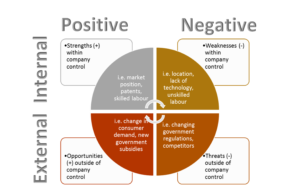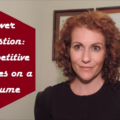Sometimes we see the roles to which we’ve applied (or for which we’ve interviewed) re-posted online. If you’ve ever wondered what it means when a company re-posts a role, this article is for you.
The short answer is: it may not mean very much. It will all depend on the reason the company has for re-posting the position. Unfortunately, you and I won’t be privy to this information.
Why Do Companies Re-Post Job Openings?
There are a number of reasons a company has for re-posting their open roles. Here is my list of potential reasons:
- Recruitment System Auto-Posts – in some cases, the systems that recruiters use might be set up to automatically post a role every couple of weeks. This is to ensure that the open position appears at the top of a search result page.
- Organizational Changes – there can be any number of things that can happen behind the scenes in an organization that can impact the role. As an example, the hiring manager may have changed positions, thereby delaying the recruitment process.
- More Referrals – the company may feel that they didn’t get the volume of employee referrals they were hoping for, so they re-post the role in an effort to generate more referrals.
- More Applicants – similar to the previous reason, the company may re-post the role if they feel they need to generate a greater number of applicants.
- “Window Shopping” – some hiring managers like to see more applicants even after they have reviewed or even interviewed top talent. This is a phenomenon I call “window shopping” and every recruiter faces this from time to time. Many recruiters can manage this situation, but it can take time and patience.
- Offer Fell Through – the company may have extended an offer which has fallen through for any number of reasons. As a result, they may feel that they need to start the hiring process again to generate an updated candidate pool.
- Ineffective Hiring Process – there is always the chance that a company’s recruitment process in general, or the recruitment process for the specific role has not been effective. I would like to think that this is the exception rather than the rule, it does happen from time to time. Candidates can ‘fall through the cracks’ and poor interview decision can be made. Again, there could be any number of reasons for this to happen.
What Can You Do?
Depending on where you are in the process, it is a good idea (where possible) to express your continued interest in the role. If you have already interviewed with the company, send your contact person (likely the recruiter) a positive e-mail. Ask if there is any additional information that you could provide to help them with their selection decision.
If you haven’t yet been contacted, perhaps someone in your network works in the company. Although I would recommend you contact your network before applying, it is never too late to ask for help. Reach out to your contact to express your interest in the company and role. See if they might have any insights or if they might be willing to refer you.
Keep in mind, it is important to stay positive with your communications. You don’t want to come across as complaining or blaming.
Final Thoughts
As mentioned in my previous posts, it is a best practice to have a target company list. When we see a ‘dream job’ posted with one of our target companies, it can be very tempting to become wrapped up with that opportunity. It is important to ensure that you don’t concentrate all of your efforts on one opportunity. Remember, anything could happen with that opportunity or within the organization to impact the outcome. As such, it is vital that you continue your job search until you’ve received an offer for your dream job.
Thanks so much for the great questions! Please keep them coming. If you have any questions, video ideas, or would like to collaborate, please don’t hesitate to leave a comment below or to contact me directly. For personalized advice, check out the services section here.
Until next time, happy hunting!









